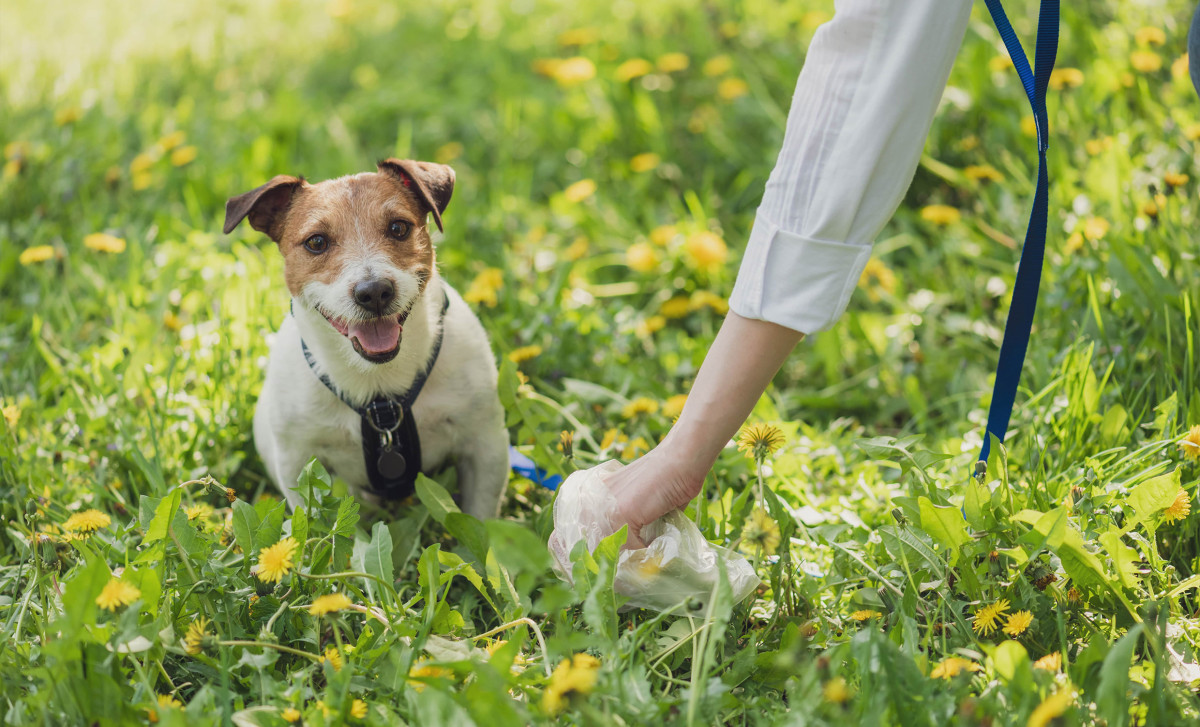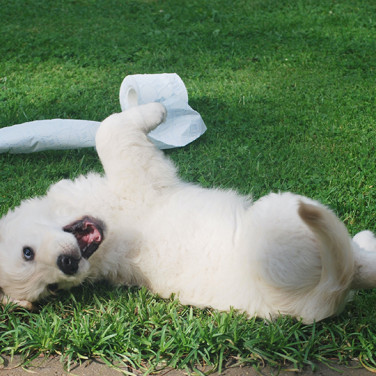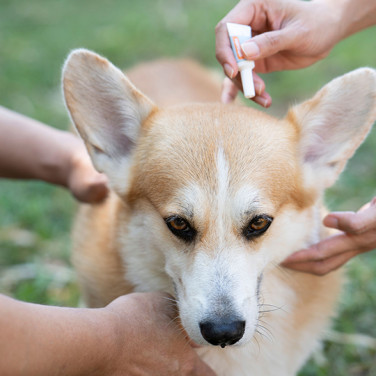DISEASES
Coprophagia in Dogs – Causes and Treatments
페이지 정보
본문

Overview
Coprophagia, or phagocytosis, is a fairly common condition in which a dog eats feces. This behavior is understandably repulsive to us, but this is a fairly common problem in dogs. This behavior is often noticed within the first 9 months of a puppy’s life out of curiosity or malnutrition. Most puppies grow out of this behavior by the age of 1. This behavior can appear at any age due to digestive disorders, infections, or behavioral problems. It is also known to occur more commonly in households with multiple dogs. Fortunately, there are treatments and training you can practice to reduce the frequency of this behavior, but it is necessary to determine the exact cause for appropriate treatment.
What Causes my Dog to Eat Poop?
The causes of coprophagia can range from medical conditions to environmental stress or behavioral problems.
The following is a list of causes that are known to have an association with coprophagia:
- Anorexia from insufficient nutrition can cause a dog to find nutrients through coprophagia.
- Conditions such as diabetes, Cushing’s disease, or thyroid disease can increase appetite in dogs, which could lead to coprophagia.
- Certain medications, such as steroids, can also increase appetite.
- Digestive disorders, such as digestive enzyme deficiency, can cause a nutrient deficiency, which can cause a dog to exhibit coprophagia.
- Some parasitic infections are also known to cause symptoms of coprophagia.
- In young puppies, this behavior can be caused by curiosity. Puppies tend to explore everything with their nose and mouth and will likely come across feces at one point. In most cases, this behavior will naturally resolve as they discover more foods that taste better.
Under certain circumstances, coprophagia may appear temporarily, and it may be an instinctive or natural behavior. The following are a few behavioral problems that can appear:
- Dogs may show this behavior if undigested food is still in the feces.
- Mothers of newborns also frequently eat the feces of newborns out of habit to keep the nest clean. The puppies may also mimic this symptom after observing their mother's behavior or out of curiosity.
- Puppies who exhibit this behavior out of curiosity tend to naturally resolve themselves as they discover more food that tastes better.
- Dogs that do not get much activity or playtime can develop this behavioral symptom out of boredom.
Dogs that do not get much activity or playtime can develop this behavioral symptom out of boredom.
- Living in isolation or confined spaces
- If the stool is not cleaned promptly, an unclean environment can encourage your dog to dispose of the remains.
- Anxiety
- Poor training
- Additionally, dogs may show this behavior in response to recent punishment to seek attention or to clean their surroundings out of fear.
What are Signs That my Dog is Eating Poop?
A dog can contract worms if preventive medicines are not kept up to date for parasites. Below is a short list of symptoms to look out for if you notice or suspect this behavior:
- Bad breath
- Weight loss
- Lethargy
- Vomiting
- Diarrhea
When is Eating Poop a Problem for my Dog?
If this behavior persists or develops into a compulsive symptom, a consultation with a veterinarian can help determine what is causing this behavior. Assessing the dog’s physical condition and behavior is a great way to judge when to take a dog exhibiting coprophagia symptoms seriously. An underweight dog may develop other diseases due to nutritional deficiencies. Any significant change in behavior, such as lethargy, increased appetite, digestive symptoms, etc., accompanied by coprophagia is a good reason to visit the vet.
How to Treat a Dog Eating Poop at Home
Do-it-yourself treatments for symptoms of coprophagia have a wide variety of solutions that can help prevent this behavior.
The following are treatments you can practice right now:
- Adding a little mint or sprinkling black pepper on feces can help condition a dog not to eat feces through aversion.
- A bored dog may need to be distracted or stimulated to unlearn this behavior. Ensuring the dog gets enough daily walks and extra play can help pay more attention to things other than feces.
- Practice clearing the stool right when it passes to reduce the opportunity for a dog to come into contact.
- If your dog shares the house with a cat, it is important to thoroughly clean all cat litter that comes into contact with feces.
- If lack of nutrients is the culprit for coprophagia, changing the feed containing sufficient daily nutrients is necessary.
- A muzzle should be considered if behavior towards fresh stool is aggressive.
- Changing their eating schedule or frequency/amount may help
- Changing the texture of the stool by switching from dry food to wet food has been associated with solving coprophagia in some households.
However, coprophagia due to behavioral problems, such as separation anxiety or compulsive behavior, may require professional treatment and therapy advised by a veterinarian.
What is the Diagnosis Process for Coprophagia?
Before making an accurate diagnosis, it is necessary to come prepared with information relevant to your dog’s coprophagia.
- Complete medical history
- Check which stool is being ingested, such as their own feces, only feces of other dogs, frozen stool during the winter, feces of a cat, etc.
- A list of what kinds of snacks, feed, diet, or medication the dog is on.
- Any other digestive symptoms accompanying coprophagia, such as diarrhea and vomiting.
Followed by these tests that can help a veterinarian determine the cause:
- A physical examination
- A stool test can identify the presence of parasites, bacteria, or viruses.
- A blood test can check for nutrient deficiency, anemia, hypoglycemia, diabetes, Cushing’s disease, etc.
How is Coprophagia in Dogs Treated?
Treatment can range from behavior training methods to lifestyle changes and medication.
-
Training
Several training methods can help in situations of coprophagia. The LEAVE IT command can be taught to dogs that habitually pick up undesirable things with their mouths. The ‘leave it’ command, accompanied by a leash on daily walks, can help keep your dog from investigating feces. Some dogs will maneuver the leash and attack their stool before you can even utter a word. Those unlucky few may require a muzzle.
-
Lifestyle changes
A new diet with sufficient nutrients and enzyme supplements can help. A high-fiber diet with at least 10% fiber can keep a dog satiated longer and make the stool less palatable. Lifestyle enrichment is also very beneficial in dogs suffering from coprophagia. Ensuring a dog gets plenty of daily exercises and spends quality time with you each day can help reduce stress and anxiety in dogs with coprophagia.
-
Medication
Despite training and lifestyle changes, some dogs may continue to experience symptoms of coprophagia. This persistence indicates possible obsessive-compulsive disorder or separation anxiety, which may require prescribed antidepressants or tranquilizers. Vitamin supplementation and enzyme supplementation may also be considered depending on the veterinarian’s judgment. Lastly, a veterinarian may prescribe anti-inflammatory and anti-parasitic drugs in the case of malabsorption from diseases such as digestive enzyme deficiency, enteritis, or parasitic infection.
How to Prevent Your Dog from Eating Poop
When dealing with coprophagia, prevention requires time and a systematic approach. The best prevention starts at the puppy stage but may only sometimes be an option. A good habit to pick up is picking up and disposing of your dog’s feces immediately. If there is a cat in the household, promptly clean the litter box thoroughly of any material that comes into contact with feces. Potty-training and teaching a dog the LEAVE IT command can also help. Enrich the dog’s lifestyle by spending more quality time and ensuring the dog gets plenty of activity. This can effectively distract a dog from paying more attention to things other than feces. Lastly, you can try feeding smaller but more frequent meals so that hunger and the urge to eat anything they see won’t come as often.
Find out more about your dog’s disease or behavior in the Buddydoc Library!

The Buddydoc library is filled with everything you’d want to know about each symptom and disease your pet may experience. If you would like to find out more about the causes, signs, treatments, preventions, and more for your dog’s behavior. Try out the Buddydoc app and search your pet’s symptom or behavior in the Buddydoc library.













